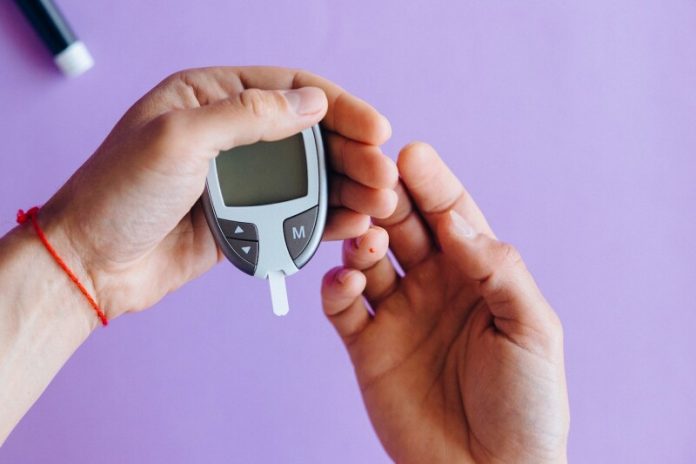What is low blood sugar?
The causes and symptoms of low blood sugar vary, but risks for those with type 1 diabetes are most pressing.
In instances where insufficient carbohydrates are consumed based on a person’s hormonal and tissue needs, glucose levels in the blood can drop below a healthy range.
In the case of type 1 diabetes, the risk lies when there is not enough hormone produced to take the sugar from the blood into tissues or there not being enough sugar for cells and tissues to use.
Low blood sugar causes and symptoms in adults
Low blood sugar (hypoglycemia) is often recognized with plasma glucose lower than 70 mg/dl.1,2
Common causes of low blood sugar include increased exercise, drinking too much alcohol, and being sick.1 The symptoms of low blood sugar can develop suddenly and range from mild to severe.1 The common low blood sugar symptoms in adults are:
- feeling shaky or jittery,
- hunger,
- quick mood changes,
- tiredness,
- appearing or feeling drunk without alcohol ingestion,
- dizziness or light-headedness,
- or having a headache.1
If blood glucose levels drop dangerously low, individuals may also experience symptoms such as loss of consciousness, changes in mental status, seizures, and/or coma.1,2
Low blood sugar risk factors
The risk of developing low blood sugar and non-juvenile type 1 diabetes is increased in individuals aged 65 years and older, persons with hormone-related or autoimmune conditions, and those with unmanaged chronic stress.1
Low blood sugar and type 1 diabetes
Older adults with type 1 diabetes have a high chance of experiencing low blood glucose levels.2
These individuals are also more prone to hypoglycemia unawareness, which occurs when the symptoms of low blood sugar go unnoticed until levels have dropped too low.1,2 As a result, understanding the best ways to monitor blood sugar levels is essential.2
Two ways to monitor blood glucose levels
A 2020 study published in the Journal of the American Medical Association examined two blood sugar monitoring methods to determine which is better for older adults with type 1 diabetes.
These two methods were continuous glucose monitoring (CGM), and standard blood glucose monitoring (BGM).2
CGM automatically provides a real-time assessment of blood glucose levels and is monitored continuously.2 While this involves wearing a small device at all times, CGM alerts when glucose levels become too high or too low.2
On the other hand, BGM is the standard way of measuring blood glucose using a finger-prick test a few times per day.2
Which blood sugar monitoring method is best
The 2020 Journal of the American Medical Association findings were that CGM is slightly better at improving blood glucose levels in the short term.2
However, it is important to note that other parameters being measured in the study did not produce significant differences when using CGM compared to BGM.2
Some of these parameters were no increased awareness of hypoglycemia, no decrease in diabetes distress and fear of having a diabetic episode, and no increased quality of life.
Importance of monitoring blood glucose levels
There are several causes and symptoms of low blood sugar, but having type 1 diabetes tops the list. One of the common causes of low blood sugar in those with type 1 diabetes is taking an incorrect insulin dose or not eating enough carbohydrates based on individual needs.1,2
To lower the risk of developing low blood sugar, research suggests using CGM to monitor glucose levels closely.2 BGM may also be effective for this purpose.2
Please consult your healthcare provider to learn more about managing your blood glucose levels.
References
- Low blood glucose (hypoglycemia). National Institute of Diabetes and Digestive and Kidney Diseases. July 2021. Accessed February 2, 2023. https://www.niddk.nih.gov/health-information/diabetes/overview/preventing-problems/low-blood-glucose-hypoglycemia
- Pratley RE, Kanapka LG, Rickels MR, Ahmann A, Aleppo G, Beck R, Bhargava A, Bode BW, Carlson A, Chaytor NS, Fox DS, Goland R, Hirsch IB, Kruger D, Kudva YC, Levy C, McGill JB, Peters A, Philipson L, Philis-Tsimikas A, Pop-Busui R, Shah VN, Thompson M, Vendrame F, Verdejo A, Weinstock RS, Young L, Miller KM. Effect of continuous glucose monitoring on hypoglycemia in older adults with type 1 diabetes: A randomized clinical trial. JAMA. 2020;323(23)2397-2406. doi: 10.1001/jama.2020.6928.



